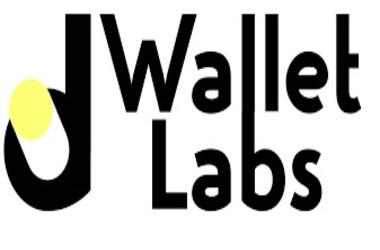
MPC and threshold cryptography are integral components within the Web3 ecosystem, serving essential functions in safeguarding assets and mitigating the inherent risks associated with private keys. MPC protocols in Web3 employ a threshold of parties to generate ECDSA signatures, thereby eliminating the dependence on a single private key. Various stakeholders within the Web3 ecosystem, such as financial institutions, users, custodians, wallet providers, and distributed networks, make use of cutting-edge Threshold ECDSA protocols. These protocols, including those pioneered by Lindell, Gennaro and Goldfeder, and MPC-CMP, are employed to ensure secure and efficient operations within the ecosystem.
Nevertheless, the current state of MPC protocols is not without its limitations, as they often necessitate a trusted setup or are restricted to accommodating only a limited number of participants. Yehonatan Cohen Scaly, the Chief Technology Officer at dWallet Labs and Co-Founder of Odsy Network, underscores the imperative for robust decentralization in the Web3 ecosystem. In this context, he highlights the inadequacy of trusted setups and limited participant numbers, as they run counter to the fundamental principles of decentralization. At present, the implementation of Multi-Party Computation (MPC) is constrained to a minimal number of participants, typically consisting of only a few individuals. The presence of this constraint impedes the realization of the complete potential of MPC in the context of Web3. THORChain enables a maximum number of participants with a threshold requirement of ⅔. However, it is worth noting that the current limit of 20 participants falls considerably below the desired level of achieving complete decentralization.
Many Web3 projects that aim to incorporate Multi-Party Computation (MPC) in permissionless networks often opt to implement it in a controlled environment, excluding a limited number of participants. The primary obstacle resides in the intricacy of communication within current state-of-the-art MPC protocols, which necessitate the use of unicast communication among participants. This implies that it is necessary for each participant to engage in communication with every other participant, leading to a quadratic increase in complexity as the number of participants increases. The utilization of unicast communication imposes significant limitations on the capacity to accommodate a large number of participants.
In order to tackle these challenges, dWallet Labs presents Tiresias, a solution that replaces unicast communication with broadcast communication. This transition effectively reduces the complexity from quadratic to linear. Dolev Mutzari, Vice President of Research at dWallet Labs and co-author of the Tiresias paper, emphasizes the profound importance of this innovation. It facilitates the seamless integration of Multi-Party Computation (MPC) protocols into blockchain environments, thereby broadening the horizons for protocols that can accommodate a substantial number of participants, ranging from hundreds to thousands or even tens of thousands.
In the present scenario, the process of generating a single ECDSA signature in a multi-party computation (MPC) framework can be time-consuming, often requiring several minutes, even when involving a small number of participants. The current algorithms also do not provide adequate support for signature batching. In practical scenarios, obtaining 1,000 signatures with only 20 participants would be a time-consuming task that could span several days, making it an impractical approach. Moreover, as the number of participants grows to a significant scale of hundreds, the task of generating even a single signature becomes impractical. As a result, it is currently not possible for any decentralized network to produce threshold ECDSA signatures using the most advanced MPC algorithms available.
dWallet Labs has recently unveiled a noteworthy advancement by introducing a pure Rust implementation of Tiresias, which is now available as an open-source solution. This particular implementation signifies a significant milestone in the field of Paillier cryptography as it is the first of its kind to operate without the need for a trusted dealer. The benchmarking results reveal an exceptional level of efficiency, as evidenced by the completion of 100 decryptions by 100 parties within a mere 1.5 seconds. Furthermore, the task of decrypting 1,000 instances by 1,000 parties was successfully accomplished in a total of 266 seconds. These findings highlight the remarkable speed achieved by the system under evaluation. This significant advancement sets the stage for the creation of extensive permissionless networks capable of producing threshold ECDSA signatures.
Omer Sadika, the esteemed Chief Executive Officer of dWallet Labs and Co-Founder of Odsy Network, enthusiastically conveys his profound satisfaction and admiration for the remarkable accomplishments of the esteemed research team. The author underscores the significance of significantly augmenting the participant count in threshold protocols in order to actualize the vision of dWallets and the Odsy Network. In addition, Sadika eagerly anticipates the opportunity to disclose further advancements in their pursuit of constructing the inaugural decentralized access control layer for Web3.